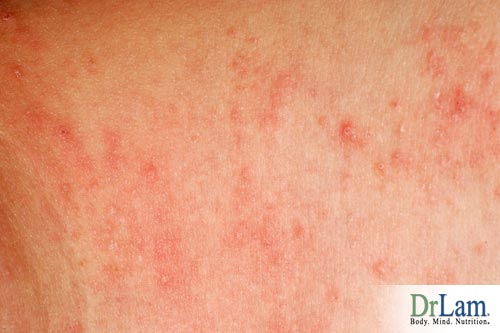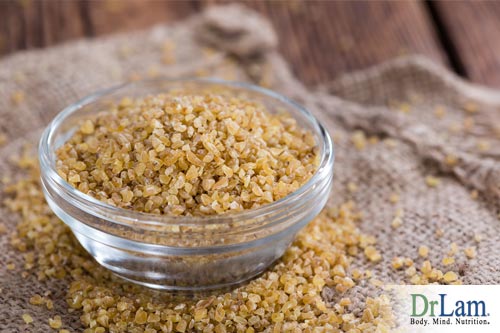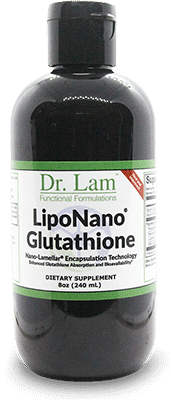 Your neuroendocrine system includes your adrenal glands. They secrete over fifty hormones. Your most important anti-stress hormone is cortisol. When the mind and body experience prolonged severe stress, the adrenal glands can become overworked and cease to function properly. This condition is commonly referred to as adrenal fatigue. To successfully treat this serious condition, it is necessary to view the problem from a NeuroEndoMetabolic (NEM) perspective, which focuses not on a single organ, but on how the body's multiple systems work together to combat stress. Foods high in sulfur are one of the lesser known components that affect adrenal health and recovery.
Your neuroendocrine system includes your adrenal glands. They secrete over fifty hormones. Your most important anti-stress hormone is cortisol. When the mind and body experience prolonged severe stress, the adrenal glands can become overworked and cease to function properly. This condition is commonly referred to as adrenal fatigue. To successfully treat this serious condition, it is necessary to view the problem from a NeuroEndoMetabolic (NEM) perspective, which focuses not on a single organ, but on how the body's multiple systems work together to combat stress. Foods high in sulfur are one of the lesser known components that affect adrenal health and recovery.
In a world of increasing specialization, it can be easy to lose sight of the bigger picture, even when it comes to your own health. If auto mechanics specialize in only one part, the way many health care providers specialize in only one body part, one mechanic would know everything about carburetors, another would know everything about oil pumps, but neither would understand how both parts simultaneously affect the overall performance of the vehicle. This would not be very effective, yet specialization within the healthcare system has moved towards compartmentalization of each organ system, often forgetting about how it works with the whole body.
Your modern life is full of stressors and how you deal with stress is affected by a complex combination of physical and environmental factors. Diet, nutrition, exercise, and exposure to toxins, or emotional trauma, can all affect your stress levels. In addition, your genetic predispositions and beliefs affect each of your physiological systems. Attitudes also affect how you deal with stress.
Some of the most common symptoms of adrenal fatigue are low blood pressure, insomnia, and fatigue. Other symptoms include anxiety, panic attacks, heart palpitations, reactive hypoglycemia, brain fog, and low libido, all of which adversely affect the quality of life. Hypersensitivity to medications and natural supplements containing forms of sulfur is also a common symptom. Avoiding these kinds of triggers can be difficult and complex, which is why many people come to us for help through our nutritional coaching programs.
There is a link between adrenal exhaustion and an increase in food sensitivities. Many of your body's neurotransmitters are made in the GI tract, which is why the gut is sometimes called the second brain. The gut, the microbiome, and the immune system regulate the inflammatory circuit of the NEM stress response system. Stress, infection, toxins, and antibiotics damage cells in the gut and increase permeability and leakage, allowing proteins, sugars, and toxins to pass through the gut wall and into the bloodstream. This causes chronic inflammation in the bowels and the rest of the body. The inflammation also extends to the brain, sometimes appearing as depression symptoms. As inflammation increases in the body, the threshold for any type of food to cause a reaction is lowered; and as there are so many inflammatory molecules in the body, even a little bit of inflammation can cause the dam to break and overflow. For this reason, it is very important to not only lower inflammation in your body, but also be very conscious and careful of what you put into your body. Unfortunately, nutrition is a highly complex area, which is why you may need expert help to design the right diet for your body and its overall condition.
 There are different types of sulfur allergies. About 100,000 Americans have sensitivity to sulfites. The allergic reaction releases histamine into the bloodstream, which can cause rashes, hives, swelling, and rhinitis (characterized by post-nasal drip, sneezing, and itchy, watery eyes). In severe cases, a sulfite allergic reaction can cause anaphylaxis, seizures or even death. A hypersensitivity to sulfonamide develops within seven to 14 days of administering the drug. High fever and a headache are the first symptoms, followed by the development of a maculopapular rash that begins in the trunk of the body, and spreads to the extremities.
There are different types of sulfur allergies. About 100,000 Americans have sensitivity to sulfites. The allergic reaction releases histamine into the bloodstream, which can cause rashes, hives, swelling, and rhinitis (characterized by post-nasal drip, sneezing, and itchy, watery eyes). In severe cases, a sulfite allergic reaction can cause anaphylaxis, seizures or even death. A hypersensitivity to sulfonamide develops within seven to 14 days of administering the drug. High fever and a headache are the first symptoms, followed by the development of a maculopapular rash that begins in the trunk of the body, and spreads to the extremities.
There are many foods high in sulfur, and to determine whether symptoms are being caused by sensitivity to sulfur, experts recommend a sulfur exclusion diet. On a sulfur exclusion diet, all foods high in sulfur, along with any medications and natural supplements containing sulfites, are completely eliminated for ten days. They are then re-introduced into the diet one at a time, closely monitoring the physical reaction, to each food, over the course of several days before introducing another.

Vegetarians and vegans may have to temporarily eliminate some of what are considered vegetarian staples. Foods high in sulfur, in the vegetable category, include favorites like broccoli, Brussels sprouts, cabbage, cauliflower, kale, collard greens, bok choy, spinach, asparagus, peas, and green beans. Watercress is another vegetable high in sulfur. Root vegetables, high in sulfur, include turnips and rutabagas. Vegetables customarily used to flavor dishes such as onions; shallots, chives, garlic, and ginger. Radishes and mustard should also be avoided.
Protein based foods, high in sulfur, containing the amino acids cystine, methionine, and cysteine should be avoided. Eggs are among the highest dietary sources of sulfur. Other high sulfur proteins include crab, scallops, prawns, shrimp, and mussels. Ham is also high in sulfur. Dairy products of any kinds should be avoided for their sulfur content. This includes yogurt and cottage cheese. Animal proteins also provide a small amount of sulfur but are tolerable if you are on a low sulfur diet. For vegans, it is best to avoid beans of any kind, including lentils, peanuts, bean curd and bean sprouts. Soy products, including tofu, tempeh, soymilk and cheeses are also foods high in sulfur. Nuts such as almonds and brazil nuts are high in sulfur content as well.
Foods high in sulfur, in the carbohydrate category, include quinoa, whey, buckwheat, and yeast extract. Most difficult for some people is cutting out items that are traditionally used for quick bursts of energy, like coffee, chocolate, tea and even carob. All are foods high in sulfur. Most fruits, are low in sulfur.
The list of natural supplements to avoid during the ten-day exclusion period includes alpha lipoic acid, glutathione, MSM, DMSO, N-Acetyl Cysteine, L-methionine, L-cysteine, L-taurine, glucosamine, L-glycine, SAMe, methylcobalamine, methyl-folate, Betaine, HCL, choline and B-complex. Epsom salt baths should be avoided as well.
The list of proteins containing low sulfur includes most types of meats. Beef, duck, fish, chicken, eel, pork, goose, game hen, rabbit, lamb, and turkey are all low in sulfur. Marrow is also low in sulfur. Seeds, including sunflower, linseeds, pumpkin seeds and flax are also sources of protein low in sulfur. However, protein should be limited to less than 50 grams per day.
Vegetables low in sulfur include squash, artichokes, eggplant, beets, celery, corn, carrots, peppers, mushrooms, lettuce, and cucumbers.
 Carbohydrates low in sulfur include potatoes, yams, sweet potatoes, bulgur wheat, barley, oats, rice, and semolina. Virtually any fruit or melon, including figs, dates, and coconut is permissible during the ten-day sulfur exclusion period. Spices and seasonings, such as brown sugar, honey, butter, cinnamon, as well as fresh herbs like basil, thyme, and rosemary are also safe to use, as are olive and sesame oils.
Carbohydrates low in sulfur include potatoes, yams, sweet potatoes, bulgur wheat, barley, oats, rice, and semolina. Virtually any fruit or melon, including figs, dates, and coconut is permissible during the ten-day sulfur exclusion period. Spices and seasonings, such as brown sugar, honey, butter, cinnamon, as well as fresh herbs like basil, thyme, and rosemary are also safe to use, as are olive and sesame oils.
After abstaining for ten days, foods high in sulfur should be reintroduced into the diet one at a time while closely monitoring for any sign of inflammation for a few days before introducing another food. Through this process, many people have successfully identified the real source of their symptoms—and gained their freedom from the pain of inflammation. Your adrenal fatigue symptoms might rebalance due to the decreased amount of stress from food sensitivity, and their neuroendometabolic pathways will then regain enough stability to respond adequately to inflammation.
With all the choices in the modern world, choosing the right diet can be difficult. That’s particularly true if you need to avoid or minimize certain substances, such as foods that are high in fiber.
For holistic health, you need help designing a diet that suits your body and will benefit any health conditions that you have. Unfortunately, most traditional medical practitioners aren’t trained in this kind of health intervention, which is why you need to turn to other sources.
Our nutritional coaching team are experts in designing individual diet plans that can improve specific health conditions as well as your health overall. So, if you’re struggling with your diet, call our team today at +1 (626) 571-1234 for a FREE** initial consultation and start enjoying the benefits of nutritional coaching.

Most effective absorption and delivery of glutathione